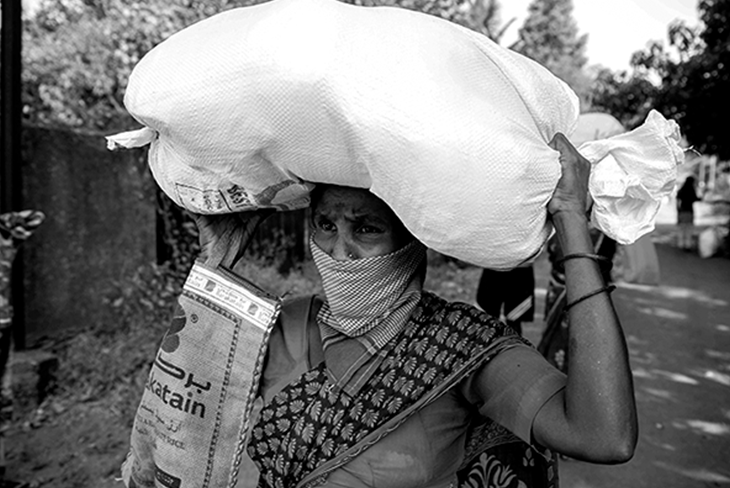Consequent to the outbreak of the COVID-19 pandemic, informal workers and their families were the hardest hit. We saw how the pandemic disrupted the lives of migrants. Dealing with the loss of livelihoods in towns and cities, lakhs of such distressed workers had to head back to their native places. ActionAid Association’s teams across states enabled workers to safely return home and provided relief in transit to those en route by offering them water, food, footwear and first aid during their arduous journeys.
In light of the massive reverse migration, a significant task at hand has been to enable returnee migrant workers to earn a living in their villages. The Mahatma Gandhi National Rural Employment Guarantee Act (MGNREGA) is a significant source of livelihood for rural communities. To facilitate people’s access to work under MGNREGA, we recently ran a multi-state campaign titled ‘Kaam Maango Abhiyan‘. We organised several community meetings under this campaign, spreading awareness of the Employment Guarantee Act provisions. Our teams and volunteers also supported people to apply for work. As a result, as of January 15, 2022, we have facilitated MGNREGA work applications impacting 37,383 individuals from 88 districts across 13 states. The campaign also included dialoguing with relevant government officials in cases of unpaid wages and other related grievances.
Aimed towards digitising the registration of all unorganised sector workers in India, the Union Ministry of Labour and Employment has recently started the eSHRAM portal. Since its launch, we have been reaching out to the most marginalised across states, informing them about the portal, and encouraging and helping them get registered. As a result, as of January 15, 2022, we have facilitated eSHRAM registration of a total of 74,866 informal workers from 122 districts across 17 states. This first-ever National Database of Unorganised Workers (NDUW) would help link these workers with the various social security schemes.
Furthermore, considering the health issues bidi workers face, we facilitated health camps in Bagda and Bongaon blocks of North 24 Parganas, West Bengal, through consistent interface with District Labour Office and Bidi Workers’ Welfare Board. As a result, more than 200 bidi workers, most of them women, underwent a medical check-up at these camps. Additionally, to enable children of informal workers to continue higher education, our teams from nine districts of Odisha helped link a total of 12,638 adolescents with cash assistance for education under a scheme of the Board of Construction Workers of Labour Department.

